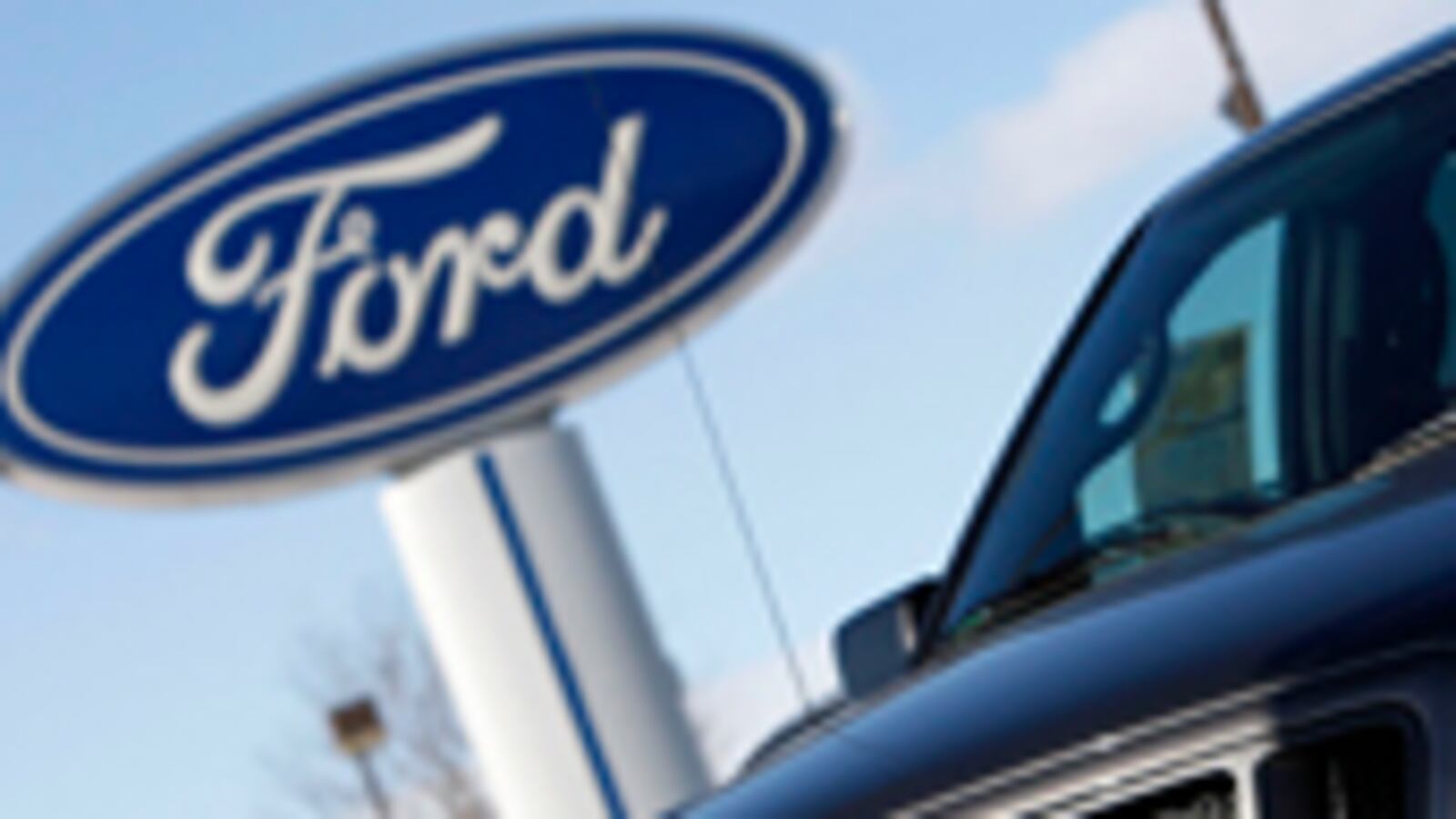
While General Motors and Chrysler soak taxpayers for billions of dollars, the other member of the not-so-Big Three, Ford, provides an instructive lesson in leadership. Avlon is the author of Wingnuts: How the Lunatic Fringe Is Hijacking America.
After billion-dollar-bailout binges, bankruptcies, and the death of the Big Three, it's time somebody said thank you to Ford on behalf of the American taxpayer.
The last man standing is also the only major U.S. automaker to choose free markets over freeloading. At a time when direct competitor General Motors took a total of $50 billion in taxpayer dollars while easing into bankruptcy and the privately controlled Chrysler helped themselves to $4 billion and a shotgun marriage with Fiat, Ford acted with a rare sense of responsibility and restraint in an unreasonable time.
As the old saying goes, “in a place where everyone’s is thinking alike, no one's thinking very much” and the American auto-industry has long suffered from a severe case of Detroit myopia.
When government is giving out free money by the barrel, short-term self-interest might dictate that it makes sense to line up and get yours. But thanks to a well-timed recapitalization and a long-term outlook, this American icon is primed to succeed as the others fail. Ford is far from out of the woods entirely, but anyone who cares about forgotten principles of fiscal responsibility ought to applaud Ford's decisions to date and root for their success in the future.
There are at least three instructive actions Ford took to put them in this pole position.
1. Get Perspective on Your Problems
When Ford failed to execute on its umpteenth turnaround attempt, they didn’t just replace one CEO with another company car guy. Instead, they went outside the auto industry to former Boeing CEO Alan Mulally in 2006.
As the old saying goes, “in a place where everyone’s is thinking alike, no one's thinking very much” and the American auto industry has long suffered from a severe case of Detroit myopia. Mulally approached the leadership of Ford with a clear-eyed perspective that defied industry conventional wisdom and compelled urgent action. He cut costs and shareholder dividends while borrowing $23.6 billion against company assets in the comparatively flush ‘06 business cycle.This set the stage for their survival.
It was institutional resistance to change that led to Ford’s toppling as the top U.S. car manufacturer early in the American Century. Founder Henry Ford imperiously insisted that customers could have “any color car they'd like as long as it was black,” while Alfred P. Sloan at General Motors pioneered the use of color to broaden the palate of taste for the American consumer. Echoes of that optimization of individual choice and customer responsiveness are what’s been missing from U.S. carmakers in recent decades.
2. Leaders Think in Decades, Not Quarters
The tail has been wagging the dog in American industry. In the buildup to this economic crisis, too many executive decisions were made with an eye on impressive quarterly reports rather than achieving real strategic goals. This opened the door for the type of con-man gamesmanship that pumped up the appearance of short-term profits at the expense of long-term shareholder value.
Mulally is fond of saying that he wants to “look decades down the road, not months.” And Ford was making early investments in next-generation auto technology even before this crisis compelled such actions. Former CEO and family scion William C. Ford, Jr. put an emphasis on environmentalism that many of his more conservative colleagues thought was a baby-boomer indulgence instead of long-term market savvy. While General Motors pulled the plug on its pioneering electronic vehicle—the EV1—over the protests of its devoted owners, Ford continued development of hybrid, flex-fuel, electric, and hydrogen vehicles, some of which will hit the road in the coming year. America’s own startup car company Tesla has the clear edge in high-end electric performance vehicles, but Ford is obeying a rule which was too long ignored among the Big Three—make change your ally, not your enemy.
3. Keep It Simple
CEO Mulally is a devotee of Japanese simplification processes (ironically, introduced to post-war Japan by American management guru W. Edwards Deming) which focus on improving essential efficiencies at the expense of complicated indulgences. Accordingly, Ford shed its less-profitable prestige brands like Land Rover and Jaguar in advance of the economic crisis, while Mulally ordered a revival of the popular former flagship brand, the Taurus.
Further simplification in terms of brands and especially union contracts will be necessary for Ford to become truly competitive in the long run. It shares the commitments that turned General Motors into a pension-delivery business rather than a car-manufacturing company, while foreign-owned, nonunionized auto companies such as Nissan have thrived in the American South. giving parity-level wages to its employees without the overgenerous pension benefits.
At a time when former apostles of the free market bellied up to the government bar and asked for billions in taxpayer bailouts, Ford was almost alone in showing respect for the American taxpayer. They deserve to be rewarded not only with accolades, but with a newfound loyalty from American consumers.
John P. Avlon is the author of Independent Nation: How Centrists Can Change American Politics. He writes a weekly column for The Daily Beast and is a senior fellow at the Manhattan Institute. Previously, he served as chief speechwriter for New York City Mayor Rudy Giuliani and was a columnist and associate editor for The New York Sun.






